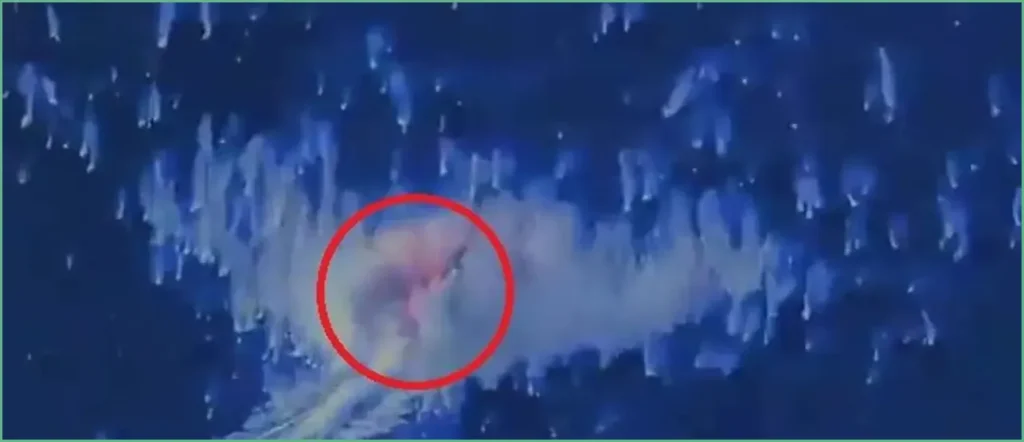Trump Admin Blows Up Another ‘Narco-Trafficking’ Boat Near Venezuela
The U.S. military carried out another strike on a vessel tied to drug trafficking off the coast of Venezuela, officials announced as part of a concentrated effort to stop poison from reaching American streets. This action represents the latest kinetic move in a campaign aimed at cartel networks that have been shipping massive quantities of deadly drugs toward the United States. The operation underscores a firm take-no-prisoners approach from the administration that wants to cut supply at sea rather than only chasing shipments after they land.
The strike occurred in international waters under U.S. Southern Command and resulted in the deaths of all four males aboard the vessel, according to public statements from Defense Secretary Pete Hegseth. The announcement was posted on X where the secretary framed the hit as a clear counter-narcotics success and a protective measure for Americans. Hegseth
“Our intelligence, without a doubt, confirmed that this vessel was trafficking narcotics, the people onboard were narco-terrorists, and they were operating on a known narco-trafficking transit route,” Hegseth said in his announcement on X. “These strikes will continue until the attacks on the American people are over!!!!” The forceful language shows the administration is treating cartel-run smuggling as an ongoing national security emergency rather than a law-enforcement nuisance.
The move follows a broader policy shift that began when the President designated major cartels as Foreign Terrorist Organizations, a step that created legal and moral space for more aggressive action abroad. That designation gives commanders and policymakers clearer authority to disrupt networks far from U.S. shores and signals a change in how threats are categorized. Republicans supporting the policy see it as a necessary escalation to protect communities at home and restore deterrence.
The administration has described individuals targeted in these strikes as “unlawful combatants” in documentation shared with Congress about prior operations, language intended to position the actions within the law of armed conflict. Officials argue that calling cartel operatives unlawful combatants recognizes their violent, organized, and transnational nature, allowing for military options that traditional criminal frameworks do not easily permit. That legal framing remains controversial to opponents but is defended by the White House as lawful and essential to stopping mass drug flows.
“As we have said many times, the President acted in line with the law of armed conflict to protect our country from those trying to bring deadly poison to our shores, and he is delivering on his promise to take on the cartels and eliminate these national security threats from murdering more Americans,” White House Deputy Press Secretary Anna Kelly said. The administration points to that line as proof the strikes are not arbitrary but rooted in legal review and national defense priorities.
Venezuela remains a central hub for transcontinental smuggling routes, and groups like Tren de Aragua have exploited the country’s chaos to expand their reach. Tren de Aragua rose from brutal conditions inside Venezuelan prisons and has since become an international criminal enterprise that benefits from weak governance and permissive maritime routes. Critics of the prior administration say the flow of people and contraband accelerated under policies that failed to prioritize border security and maritime interdiction.
“A boat loaded with enough drugs to kill 25 TO 50 THOUSAND PEOPLE was stopped, early this morning off the Coast of Venezuela, from entering American Territory,” the President said. That blunt tally is meant to provide a human scale to otherwise abstract statistics and to justify strong measures to choke off supply chains before they reach the U.S.
The State Department has long asserted that Venezuelan authorities, including high-level figures linked to the so-called Cartel of the Suns, have enabled and profited from narcotics trafficking. Accusations that elements of the Maduro regime are complicit deepen the strategic stakes and make the Caribbean a defensive fronthead for U.S. policy. For many conservatives, confronting state-enabled trafficking is a national security imperative, not a diplomatic courtesy.
Why this matters
These strikes are meant to be deterrent and disruptive: stop the boats, break the networks, and make smugglers think twice about using international sea lanes as operating rooms for their trade. For Republicans, decisive military action against criminal networks is a practical extension of protecting American citizens when other levers have failed. The debate will continue over legal labels and oversight, but the immediate goal remains simple and urgent — fewer deadly drugs on American streets and fewer funerals for families ripped apart by addiction.
Congress now faces a choice: back the administration with resources and legal clarity or leave operators with contested authorities that slow decisive action. Lawmakers who want to close the door on fentanyl and heroin shipments should consider codifying designations and bolstering interdiction tools so commanders can act quickly and lawfully. Until the criminal machine running these routes is stopped, expect more strikes and more political fights about the right tools to protect the homeland.
